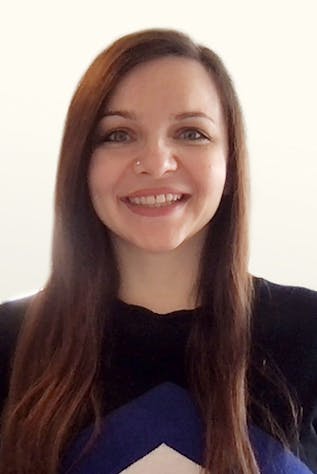.tech Podcast - All about conference speaking
Table of contents
Blogs· 4min July 19, 2023
Patrycja, Artur and Marcin are engineers at Form3 and some of our most accomplished speakers. They join us to discuss their motivations for taking up the challenge of becoming conference speakers, tell us how to find events to speak at and share their best advice for preparing engaging talks. They offer advice for new and experienced speakers alike.
Patrycja Wegrzynowicz is Lead SRE Engineer at Form3. She works on reliability and performance of UK payments. She has a wealth of experience, having been a professional software engineer for over 20 years. Her main area of expertise lies in Java, C++, security and performance tuning.
Artur Kondas is Lead Engineer at Form3. He has a music background and is a self taught engineer, specialising in the Go programming language.
Marcin Niemiec is Cloud Security Engineer at Form3. He is part of the defensive team, keep our team and our platform safe and to the highest security standards.
Why do we attend and speak at conferences?
Our panel has a very extensive experience speaking at a variety of technical events. They share their main motivations to attending events and taking the stage:
- Share knowledge with the community: speaking at conferences gives you a platform to share your technical knowledge and expertise with the community, enabling others to learn from you.
- Networking: attending events gives you the opportunity to create face-to-face, real-world connections with others. This is one of the main benefits of in-person technical events and it is definitely one of those immeasurable benefits of community.
- Developing your presentation skills: presentation skills are absolute essentials for successful engineers, so developing an on-stage persona and growing your presentation skills is something that will serve you in your day-to-day, professional career.
- Learning while preparing presentations: as a presenter, preparing a new talk allows you to deep-dive into projects and technologies, organising your thoughts. This is a great learning opportunity which allows you to build compelling material to share with the community. Teaching something to others is a great way to understand something in depth!
- Boosting your confidence: delivering a talk, even if it is not perfect, is a great achievement. The feeling of accomplishment is a great confidence booster that can help you feel like an expert in your own field. If you are a mentor, recommending to your mentees to take the stage is a great opportunity for them to grow.
While virtual events have a more global audience, it is harder to engage the audience as a presenter when you are not standing in front of them. It's harder to read how your talk is received if you are not in the physical room as your listeners. If possible, try to attend events in person wherever possible.
Online only events require special, separate preparation from in-person events, often requiring speakers to pre-record their talks. This can be a time-consuming process that you should not underestimate. Engaging with an online-only audience requires a completely different skillset than presenting on stage. However, as online events have the potential to reach a larger audience, it is definitely something that speakers should cultivate.
How do we find conferences to speak at?
Now that we have established the benefits of speaking at and attending conferences, our speakers share how to find events to pitch their ideas/talk suggestions at:
- Local meetups: when beginning on your speaking journey, it's important to start small. Find your local meetup or community and begin speaking there. This will give you a safe space to get comfortable speaking, then you can scale up as you get more experience.
- WikiCFP: aggregate calls for papers (CfPs) for conferences that are looking for speakers. This is agreat way to discover new conferences that suit your interests and background.
- Volunteer to teach: a great way to teach others and get experience speaking is to engage with volunteer organisations that are focusing on teaching people to code. Some examples are Colorintech, Code First Girls and Rails Girls. Taking a local approach to finding organisations to volunteer for is a great way to discover how you can help.
- Friends and more experienced colleagues: the tech circle is small, so don't forget to also ask your friends and colleagues to tell you about conferences that they enjoyed. This will make it easier to find events that suit your preferences. Your more experienced colleagues can recommend events that are suited to newcomers as well as guide you when you are preparing.
- Social media: the power of social media extends to finding exciting technical community events and initiatives. The TechDailyCFP newsletter collates updates from technical events around the world.
How do we prepare for speaking on stage?
The key to a successful talk lies in the preparation. Our guests share some of their best tips for preparing:
- Rehearse, but don't memorise: in order to get your nerves under control and ensure that you have the right timings, it's important to rehearse your talk. Also, in order to keep a conversational, natural tone, avoid memorising your talk. There is an element of improvisation on stage, but it's important to know exactly what you're going to say and when you will say it. Try to aim for at least 2-3 full rehearsals.
- Don't be afraid to do last minute changes: as you rehearse and try things out, you might get last minute ideas of changes that you want to make. Don't be afraid to implement these into your talk.
- Tailor your talk to your audience: if you are presenting your talk at multiple events, make sure that you tailor your presentation according to the audience at that particular event. This will give you variation in your talk and create a more engaging experience for your listeners.
- Start with the big picture: begin by sketching out an outline of your talk: what would you like to show, what code demos would you like to include, what interesting corner cases would you like to highlight. Once you have a clear idea of what you would like to cover, finalising your demos and slides becomes a lot more straight forward. Stay focused and on-mission, ensuring that you have a clear story line that will be engaging to the audience.
- Don't underestimate the work: preparing talks is time consuming and don't underestimate how long it takes to put together a presentation which looks effortless. Start your preparations at least a month before the event to have time for rehearsals and polish your content.
- Get in the right headspace: make sure to take time to gather your thoughts and feel good before you speak. Simple things can have a big impact. Make sure you are wearing comfortable clothing, shoes and do the things that usually make you feel confident whether that be listening to music, meditation, breathing exercises or anything that helps you feel your best.
- Expect the unexpected: no matter how much you prepare beforehand, mistakes happen and code demos sometimes do not work. Go with the flow, keep your composure and continue with your presentation. The audience wants to see you succeed, so don't get disheartened if something goes wrong on stage. If you are including any demos, prepare back up recordings in case something goes wrong onsite like slow Internet connections.
Most importantly, be energetic, passionate and exciting. Remember that you are there to share what you know and the audience is there to support you! Let your personality shine through.
Catch up with our speakers at events
Finally, our wonderful speaker panel shares which events you can expect to meet them at this year:
- Marcin will be speaking about how to mitigate SSRF vulnerabilities in Go at BSides Ljubljana and BSides Athens.
- Patrycja will be speaking about securing Kubernetes at Code Europe, European Women in Tech, KCD Munich, GopherCon UK, JavaZone, Porto Tech Hub, JAX London and DevOpsCon.
- Artur will be speaking about scaling & securing microservices at DevBcn, GopherCon UK and ContainerDays.
Written by
Adelina is a polyglot engineer and developer relations professional, with a decade of technical experience at multiple startups in London. She started her career as a Java backend engineer, converted later to Go, and then transitioned to a full-time developer relations role. She has published multiple online courses about Go on the LinkedIn Learning platform, helping thousands of developers up-skill with Go. She has a passion for public speaking, having presented on cloud architectures at major European conferences. Adelina holds an MSc. Mathematical Modelling and Computing degree.
Further resources
Blogs · 10 min
Dangling Danger: Route53's Flawed Dangling NS Record Protection
A subdomain takeover is a class of attack in which an adversary is able to serve unauthorized content from victim's domain name. It can be used for phishing, supply chain compromise, and other forms of attacks which rely on deception. You might've heard about CNAME based or NS based subdomain takeovers.
October 27, 2023
Blogs · 4 min
Applying the Five Ws to Incident Management
In this blogpost, David introduces us to the five W's of information gathering - Who? What? When? Where? Why? Answering the five Ws helps Incident Managers get a deeper understanding of the cause and impact of incidents, not just their remedy, leading to more robust solutions. Fixing the cause of an outage is only just the beginning and the five Ws pave the way for team collaboration during investigations.
July 26, 2023
Blogs · 4 min
Decision-making and design in growing engineering organisations
Andy recently wrote about what he considers to be the key ingredients for bootstrapping a new engineering organisation. Many of these ingredients are about what you use to build your organisation with. However, this post describes one key element of how you do it. This blog post describes one way of making decisions and designing new changes which scales well with a growing team, and includes everyone in the process.
June 28, 2023












